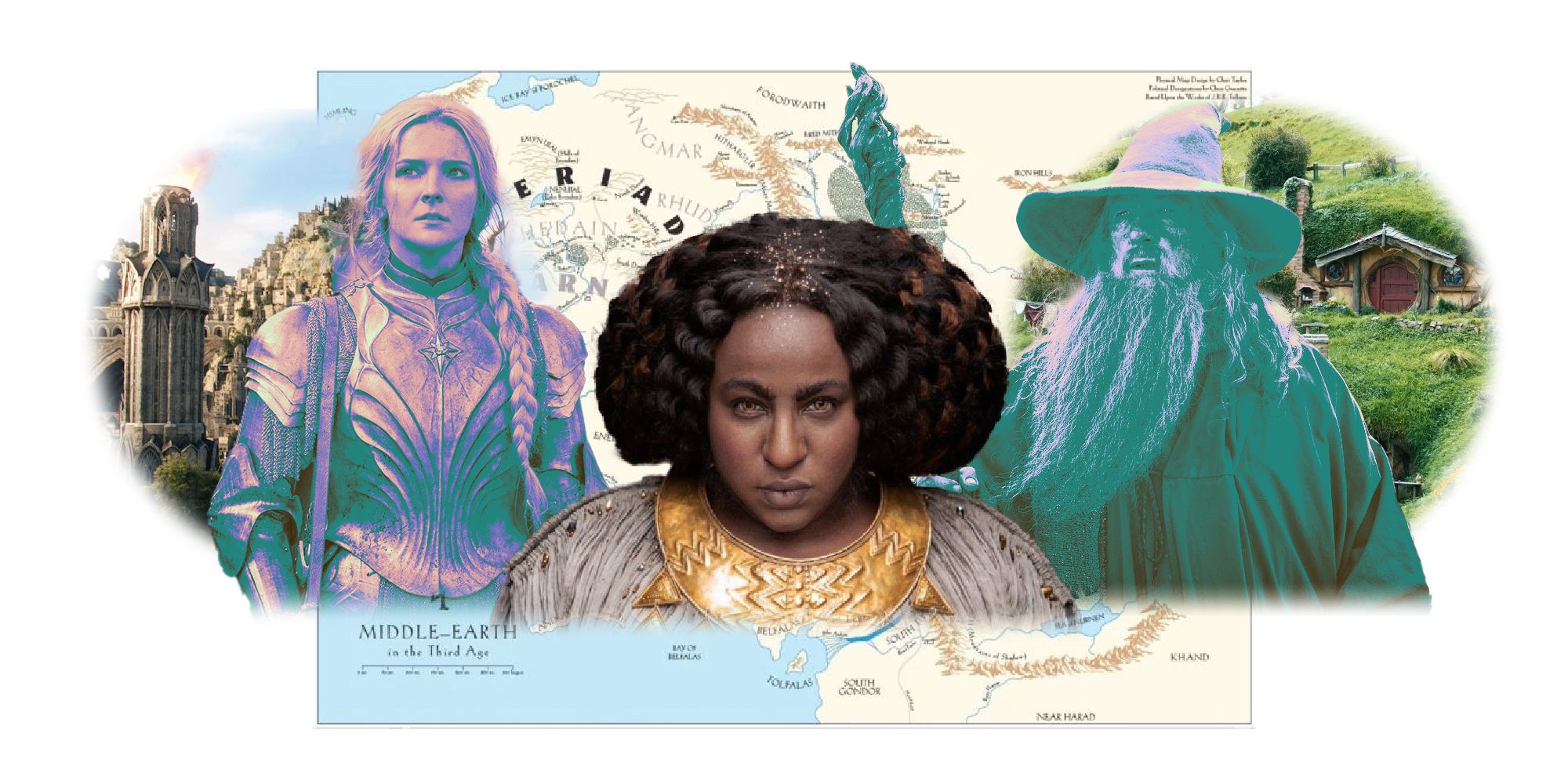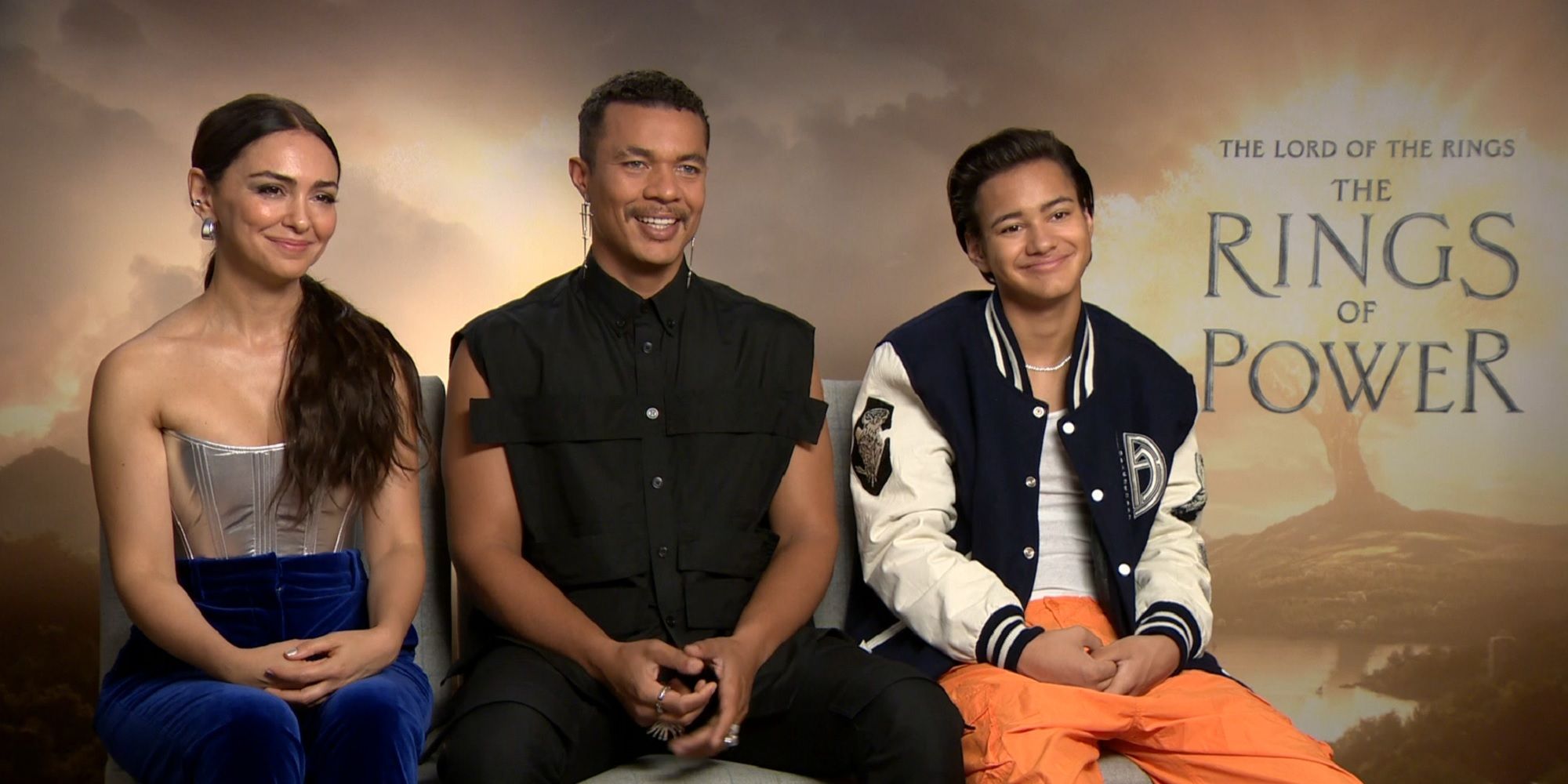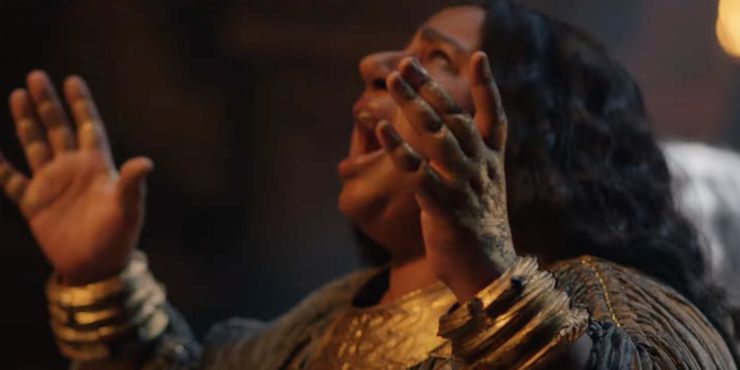J. R. R. Tolkien created a world that shaped modern fantasy. While he was undoubtedly influenced by far older mythologies, from Arthurian tales, to the epic saga of Beowulf, to extinct languages, The Lord of the Rings redefined the fantasy genre, and to an extent redefined fiction itself.
Millions have been sucked into the tales of Frodo et al., whether by the books themselves, the film trilogy from the early ‘00s, or the video games – the latter is how The Rings of Power’s Halbrand got into Tolkien. His stories of Hobbits, Elves, and Dwarves are unmistakably human at their heart – in the sense that they’re stories about people, whatever race, more than about epic wars or generation-spanning revenge sagas – but at the core of them all is a sense of community. What else is the eponymous Fellowship if not nine people coming together from different races and backgrounds for a common cause? They have their differences, sure, but they overcome them and cement themselves as firm friends – none moreso than Legolas and Gimli overcoming generations of hate to become BFFs for life.
The Rings of Power has embraced this quality of Tolkien’s work, and as Nazanin Boniadi, who plays original character Bronwyn in the show, told TheGamer, “[We’re] a fellowship of Elves and Dwarves and Númenorians and all these different creeds and cultures – Harfoots and Humans – coming together to overcome adversity. What better way to portray that than having people of different backgrounds bring that to the screen?”
That hasn’t come easily, however. Racists, some of whom masquerade as fans of whatever recent TV show has cast people of colour and others who are actual Tolkien fans blinded either by the overly-white Jackson, Walsh, and Boyens films or just overcome by their prejudices, have been hounding the actors from the moment they were announced.
“I dealt with it by delving into this story,” explains Sophia Nomvete, who plays Dwarf Disa in the show. “I dealt with it by celebrating what we're doing, which is essentially creating a world which is hugely more accessible to many people. This franchise has not been seen in this way before, and the nature of Tolkien is a celebration of multiple races coming together in the most fantastical way.
“Ultimately, suddenly, our existence in the real world reflects in his stories, which in my mind's eye, it always has. This is fantasy, this is a world where we can play.”
However, she emphasises that sometimes all the hatred and bile spouted at her online does get to her, and that actors are not immune to the vile words that a vocal minority spew at them every day.
“I am not immune to it,” she says. “There have been many narratives that, ‘there's not nice things’ – that's a huge understatement for what many of us have been dealing with. They [online abusers] are violent and aggressive and threatening and frightening. But I have an incredible support system, two of which are sitting right next to me today [she gestures to Robert Aramayo, who plays Elrond, and Owain Arthur, who plays Durin], who go to bat for me when sometimes I can't.
“But also, I take huge pride and excitement in the mountainous amount of people who are so excited to say now we see [ourselves]. Now my daughter or my son will see themselves staring back at them, now I see myself on the screen. And now this story in this franchise has truly begun, which is a celebration of every single person in this world.”
If you can believe that Elves and Dwarves roam Middle-earth, and Dragons fight giant, sentient eagles in the service of a dark lord, then you can stretch your mind to think that some of these Elves and Dwarves might not be white. Close readings of Tolkien’s own writing suggest that main characters such as Samwise and Aragorn might not have been intended to be white, but that’s a discussion for another time. The Rings of Power has finally included people of colour in a Tolkien adaptation, and in the words of Arondir’s Ismael Crúz Cordova, “it's about time.”



